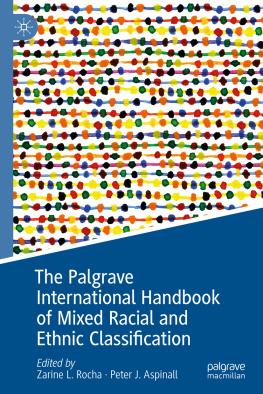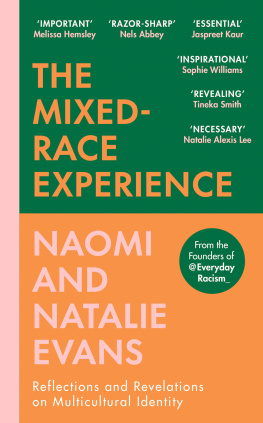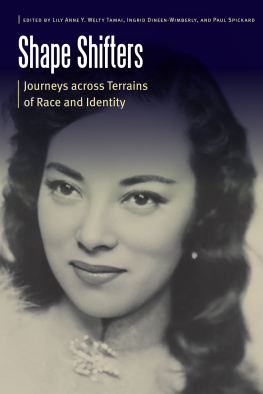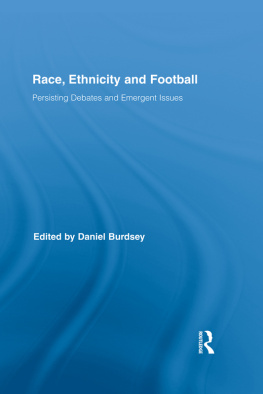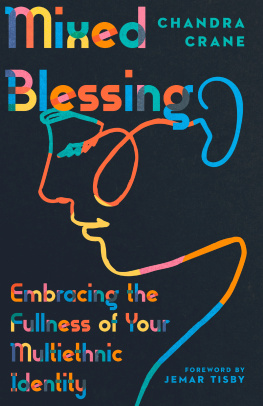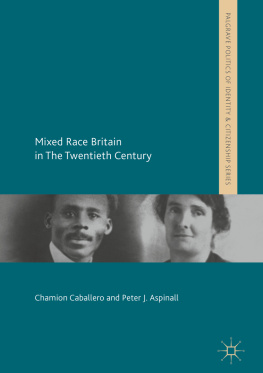
Mana Tangatarua
This volume explores mixed race/mixed ethnic identities in Aotearoa/New Zealand. Mixed race and mixed ethnic identity are growing in popularity as research topics around the world. This edited collection looks at mixed race and mixed ethnic identity in New Zealand: a unique context, as multiple ethnic identities have been officially recognized for more than 20 years.
The book draws upon research across a range of disciplines, exploring the historical and contemporary ways in which official and social understandings of mixed race and ethnicity have changed. It focuses on the interactions between race, ethnicity, national identity, indigeneity and culture, especially in terms of visibility and self-defined identity in the New Zealand context.
Mana Tangatarua situates New Zealand in the existing international scholarship, positioning experiences from New Zealand within theoretical understandings of mixedness. The chapters develop wider theories of mixed race and mixed ethnic identity, at macro and micro levels, looking at the interconnections between the two. The volume as a whole reveals the diverse ways in which mixed race is experienced and understood, providing a key contribution to the theory and development of mixed race globally.
Dr Zarine L. Rocha is Managing Editor of Current Sociology and the Asian Journal of Social Science.
Dr Melinda Webber is an Associate Professor in the Faculty of Education and Social Work at the University of Auckland.
First published 2018
by Routledge
2 Park Square, Milton Park, Abingdon, Oxon OX14 4RN
and by Routledge
711 Third Avenue, New York, NY 10017
Routledge is an imprint of the Taylor & Francis Group, an informa business
2018 selection and editorial matter, Zarine L. Rocha and Melinda Webber; individual chapters, the contributors
The right of Zarine L. Rocha and Melinda Webber to be identified as the authors of the editorial material, and of the authors for their individual chapters, has been asserted in accordance with sections 77 and 78 of the Copyright, Designs and Patents Act 1988.
All rights reserved. No part of this book may be reprinted or reproduced or utilised in any form or by any electronic, mechanical, or other means, now known or hereafter invented, including photocopying and recording, or in any information storage or retrieval system, without permission in writing from the publishers.
Trademark notice: Product or corporate names may be trademarks or registered trademarks, and are used only for identification and explanation without intent to infringe.
British Library Cataloguing-in-Publication Data
A catalogue record for this book is available from the British Library
Library of Congress Cataloging-in-Publication Data
A catalog record for this book has been requested
ISBN: 978-1-138-23336-2 (hbk)
ISBN: 978-1-315-30981-1 (ebk)
Typeset in Times New Roman
by Apex CoVantage, LLC
Contents
PAUL SPOONLEY
ZARINE L. ROCHA AND MELINDA WEBBER
SECTION I
Mixedness and classifications across generations
ZARINE L. ROCHA AND ANGELA WANHALLA
ROBERT DIDHAM
POLLY ATATOA CARR, TAHU KUKUTAI, DINUSHA BANDARA AND PATRICK BROMAN
EMILY KEDDELL
SECTION II
Mixed identifications, indigeneity and biculturalism
RAE SIILATA
KAYA ORIYAMA
LINCOLN DAM
KARYN PARINGATAI
SECTION III
Mixing the majority/Pkeh identity
ROBERT DIDHAM, PAUL CALLISTER AND GEOFF CHAMBERS
ESTHER FITZPATRICK
Polly Atatoa Carr is an Associate Professor of Population Health at the National Institute of Demographic and Economic Analysis, University of Waikato and a practicing Public Health Physician at the Waikato District Health Board. She received her medical training, undergraduate science, post graduate science and public health qualifications from the Universities of Waikato and Auckland, and has worked for more than 10 years across the government, health board, and non-government sectors. Pollys particular areas of research interest and expertise include the translation of research evidence to policy and programmes for the achievement of health equity. In this space, Polly is interested in the intersection between the current focus on official statistics in New Zealand, indigenous research ethics, and appropriate interpretation of research data.
Dinusha Bandara is a biostatistician with extensive experience in statistical consulting, data management, data analysis and health research. Her research interests include biostatistics, epidemiology, health surveillance, population & statistical genetics and linking complex health datasets. From 2010, she has been with the Growing Up in New Zealand study led by the University of Auckland, providing expertise in biostatistics and contributing to various research projects as part of a multi-disciplinary team. Her academic qualifications include a BSc (double major in statistics and pharmacology), PGDipSci (statistics and community health), and MSc with First Class Honours (medical statistics) from the University of Auckland. In addition, she has also completed a course on The Power of Bioinformatics in Modern Research at the University of Oxford and completed a certificate of proficiency in Advanced Bioinformatics at the University of Auckland.
Patrick Broman is a PhD student at the National Institute of Demographic and Economic Analysis, University of Waikato. His research focuses on questions of identity and belonging for New Zealands settler-European majority, examined through the demographic lens provided by (ultimately political) census data. Patrick holds degrees in Sociology and Demography, also from the University of Waikato.
Paul Callister is a self-employed economist. Pauls research has primarily focused on education and labour-market issues. In relation to the labour market, he has had a long interest in the changing distribution of paid and unpaid work among individuals and households. In the education arena Paul has published widely on the gender dimensions of changes in that sector. He has also had a long interest in ethnicity both as a variable within his research and in terms of methodological questions on ethnicitys construction and measurement.
Geoff Chambers is a Senior Research and Teaching Fellow in the School of Biological Sciences at Victoria University and a Visiting Professorship at Universiti Sains Malaysia in the USM School of Biological Sciences. His research career includes a programme on human genetic variation with applications in forensic science and medicine. Many of the projects include Mori and Pacific volunteers and the findings of this work help to inform our developing picture of the Austronesian Diaspora. Over the past ten years he has placed particular emphasis on medical projects exploring the significance of genetic differences between Pacific peoples and Europeans. This new information helps in part to explain differential incidence in autoimmune diseases between these two groups. The work continues today in collaboration with colleagues at USM Kelantan in Malaysia.
Lincoln Dam is a first-generation New Zealand-born Chinese-Thai. He is currently a PhD candidate in Te Puna Wnanga, the School of Mori and Indigenous Education, University of Auckland. Supported by a University of Auckland Doctoral Scholarship, Lincolns thesis draws on mtauranga Mori (Mori knowledge), Buddhist philosophies, and the ethical-political philosophies of Emmanuel Levinas and Jacques Derrida to advance discussions for the simultaneous pursuit and co-existence of biculturalism and multiculturalism in Aotearoa/New Zealand. In 2015, Lincoln was invited to join the New Zealand Asian Leaders, a professional organisation for Asian New Zealand leaders to promote cultural understanding in New Zealands diverse communities.


